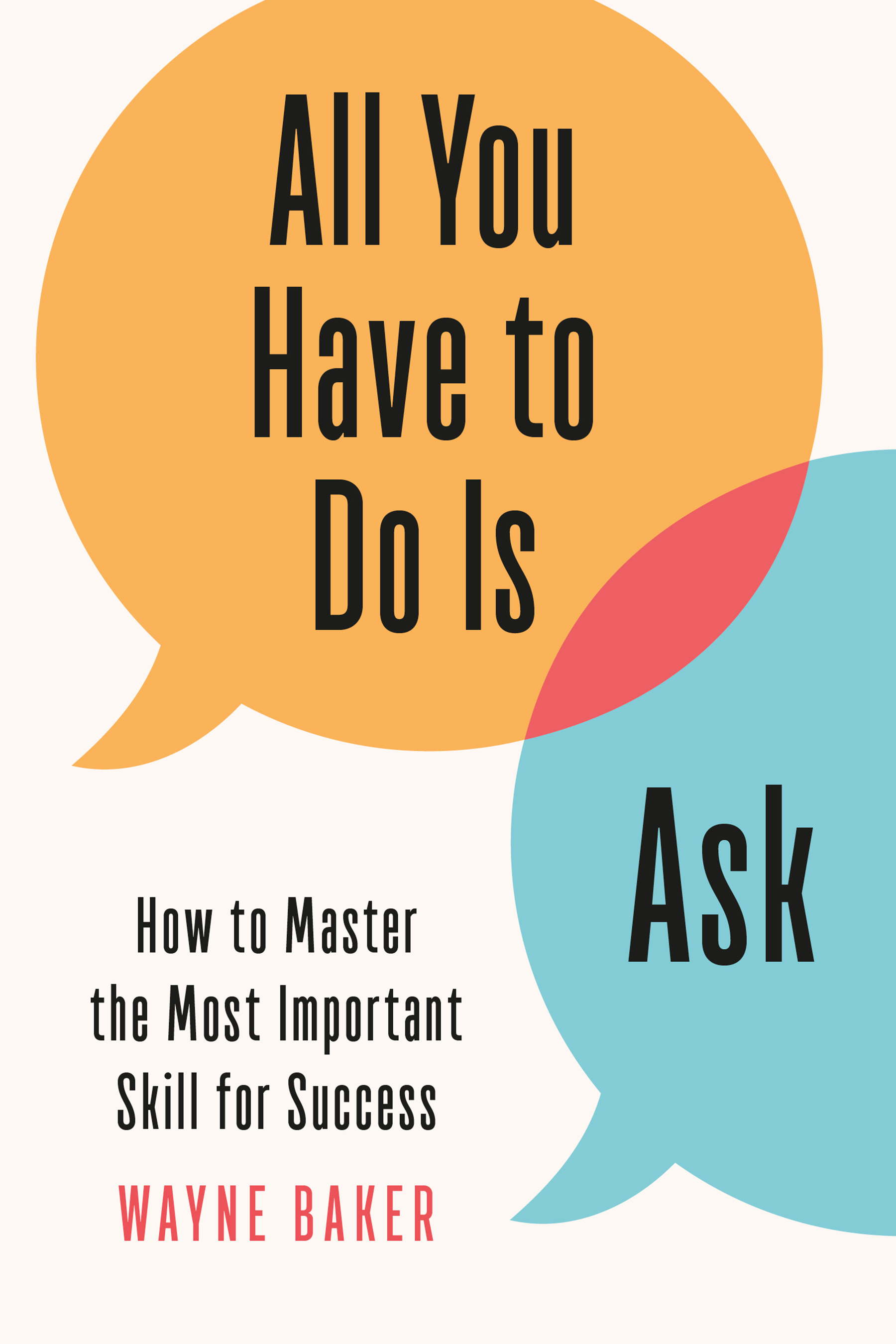A senior engineer at a major auto company was struggling to solve a complex technical problem. He’d been going around in circles on it for months, in fact, and was getting nowhere. Then one day he decided it was time to seek some help. So, he reached out to his network of colleagues, described the problem, and asked if anyone knew an expert he could consult with. Much to his surprise, the first person to respond wasn’t one of the senior research scientists, or an engineer in a different unit. Instead, help came from an unlikely source: a 22-year-old administrative assistant who had just been hired by the company. Turned out that her father was one of the world’s experts in the very process the engineer was struggling with. What’s more, he had recently retired—and his wife was encouraging him to spend more time out of the house. The admin introduced the engineer to her father, and the engineer got the expertise he needed.
This example illustrates a crucial point: you never know what people know—or who they know—until you ask. No one would have thought that a young admin would hold the keys to the solution. If you just ask for what you need, help will come, sometimes from the place you least expect it.
In the workplace, asking for help can mean the difference between success and failure. This isn’t anecdotal: in fact, research has revealed a number of proven benefits:
Higher job performance and satisfaction. Simply put, you need things from others to get your work done. Whether it’s information, some skill or expertise, an extra pair of hands, or buy-in for an idea or project, getting what you need enables you to do your job well, and when you that happens, you’re happier and more satisfied at work.
New-hire success. When starting a new job, you will inevitably need help to navigate your new work environment and understand what’s expected of you. Studies show that new hires are less frustrated at work, perform better, and are more likely to stay when they seek and obtain help to clarify job requirements, understand their work setting, and get technical assistance.
Finding jobs—or talent for job openings. Looking for a new job? Or the right person to hire? You’re more likely to find them when you ask people in your network for suggestions, recommendations, and referrals. In the days before the Internet, 50 percent or more of jobs were found via social and professional ties. These ties remain just as important now, even though digital platforms, such as the job-search engine Indeed, are increasingly used. Referrals through social networks produce higher yields than digital search methods, meaning that they result in more actual hiring, and people hired stay longer at their employers.
Learning and professional development. Learning cannot happen in a vacuum. We learn by trying out new skills and ideas and then asking others for feedback about the results.11 For example, if you want to learn how to give an effective speech, you may be able to prepare and give one on your own, but without feedback on your performance, you’ll never know what you need to improve or work on. And most people won’t give you feedback unless you ask for it.
Creativity and innovation. Great ideas don’t come out of the blue. And innovation is not a matter of luck. We cultivate creativity by asking for and getting information, by exchanging ideas, and by engaging in conversations.12 For example, when my colleagues and I teach design thinking, we send executives from the comfort of the classroom into the wilds of Ann Arbor, compelling them to approach complete strangers and ask about their experiences with a particular product or service. The execs return with new ideas for their prototypes, as well as the pleasant discovery that most strangers will say yes when asked to participate.
Managing stress. If you often feel stressed at work or at home, you have plenty of company. Eight of ten Americans (79 percent) say they feel stress every day, and on-the-job stress is the top complaint of American workers, according to Gallup. Research demonstrates that asking for help and support alleviates stress and time pressure—and elevates engagement and job performance.
The benefits of help-seeking accrue to teams and organizations as well. Here’s how:
Team performance. Asking for help improves team performance because it enables team members to be more creative, to learn from one another, and to develop a collective understanding of the team’s purpose, vision, and tasks. The highest-performing teams cultivate external networks and use them to seek information, feedback, expertise, and other resources.
Cost reduction. The benefits here are significant. Research shows that companies significantly reduce medical, disability, and workers’ compensation costs, as well as experience lower absenteeism and higher productivity, when their employees voluntarily make use of employee assistance programs.
Plus, we reduce costs simply by getting to solutions faster or discovering more economical alternatives. For example, I once worked with a scientist for Aventis who needed to synthesize a strain of a particular alkaloid for a blockbuster drug his team was developing. He was about to contract with an outside lab and pay $50,000 for the service. Instead, using the tools in this book, he reached out to a network of scientists and made a request for a cheaper alternative. A colleague at Aventis responded to the request, saying that he had slack capacity in his lab and could do it for free, saving the entire amount that would have gone to the vendor.
What is telling about this example is that the scientists were on the same drug development team. But because they weren’t in the habit of routinely asking for what they need, the scientist with slack capacity had no idea that the other scientist was about to contract with an outside vendor for an analysis that could be done in-house. Voicing the request made the need known. Once known, others could respond. And they did.
Encouraged by this success story, other scientists on the team began making a range of requests. When asked to estimate the total dollar value of the help they received, the scientists reported immediate savings that exceeded $200,000—just for this one development team, and in the span of only two and a half hours, the time it took to use a tool from this book.
Productivity and profitability. When help-seeking and giving are the norm in a company, employee productivity is higher and turnover lower. When CEOs frequently ask for feedback about their performance, top management teams become more committed, which in turn improves the financial performance of their companies. And firms are more profitable when they have employees who network broadly and help one another versus firms with employees who focus on individual tasks and individual performance. In the case of the Aventis team, for example, the scientists also reported that the quick responses to their requests saved them more than three thousand hours—time that could now be put toward another drug under development.
Help-seeking improves operational efficiencies because it allows us to find and obtain information, labor, and capital more quickly and reduces duplication of effort. It accelerates the use and flow of an organization’s resources. And people are more productive when they don’t waste time—and mental energy—by struggling too long on a problem or task before asking for assistance
It may seem like a paradox, but asking is also the key to giving. I first learned this truth decades ago when I started developing tools to enable individuals, teams, and organizations to tap their networks and unlock the wealth of resources around them. Back then, I assumed that getting people to be generous would be the problem. Not so. To my surprise, the real problem was getting people to ask for what they needed. I learned that most people are in fact willing to help—if they are asked. But most people don’t ask, and as a result, all those answers, solutions, and resources were being left untouched, unused and wasted—for no good reason.
These early lessons have been reinforced over time by research and the experiences of the many thousands of people around the globe who have used these tools. And these lessons sparked my interest in the reasons why it’s so hard to ask for what we need, and motivated my quest to find proven, practical, and effective tools and that overcome the obstacles to asking.

Excerpted from ALL YOU HAVE TO DO IS ASK: How to Master the Most Important Skill for Success © 2020 by Wayne Baker. Published by Currency, an imprint of Penguin Random House LLC, on January 14. No part of this excerpt may be reproduced or reprinted without permission in writing from the publisher.
Follow us here and subscribe here for all the latest news on how you can keep Thriving.
Stay up to date or catch-up on all our podcasts with Arianna Huffington here.


